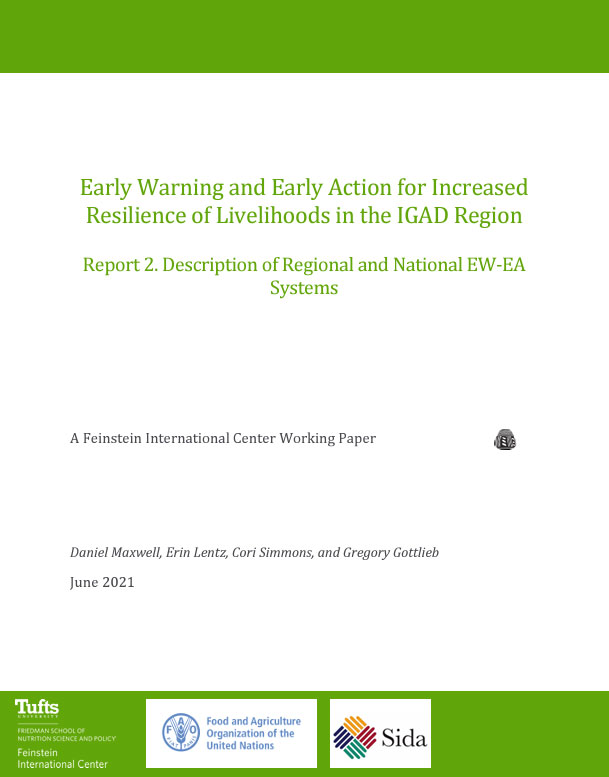The East Africa region is amongst the most food insecure areas of the world. In 2020, the combined threats of desert locusts, climate change, COVID-19, and conflict led to increased levels of food insecurity, and the number of crises affecting the East Africa region will likely continue to increase due to the effects of climate change and other drivers.
The role of early warning early action (EW-EA) systems to mitigate crises and reverse this trend are critical.
As part of a larger study, this report briefly reviews regional EW-EA systems and then provides an in-depth review of existing systems at the national level including systems operated by national governments, international information systems or programs, the UN and in some cases national and international NGOs. The full review of regional systems is in Report 1.
This is Report 2 in a multi-part report:
- The Executive Summary provides a brief overview of the all the reports.
- Report 1 provides the background to the study, a brief conceptual overview, the main findings of the study, and the recommendations to FAO and IGAD.
- Report 3 deals specifically with new technology in predictive analytics and machine learning to enhance approaches to EW-EA.







